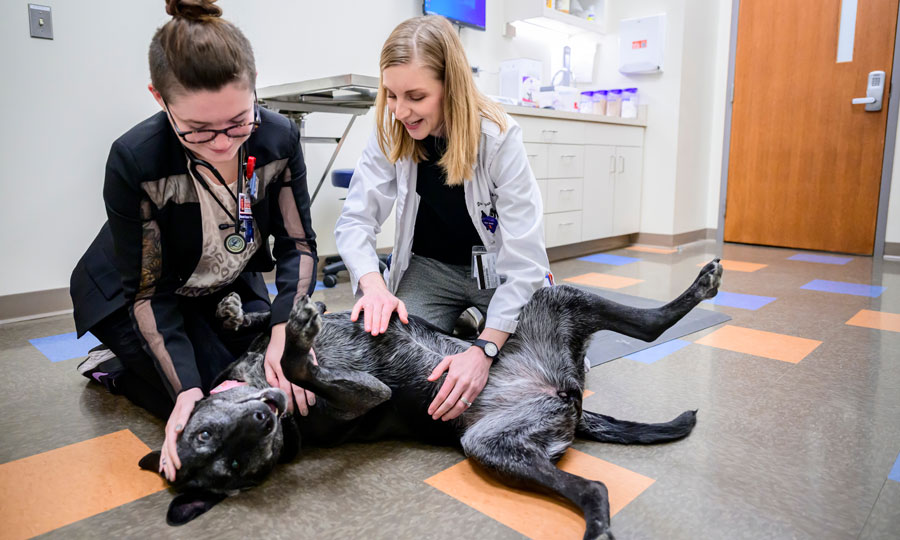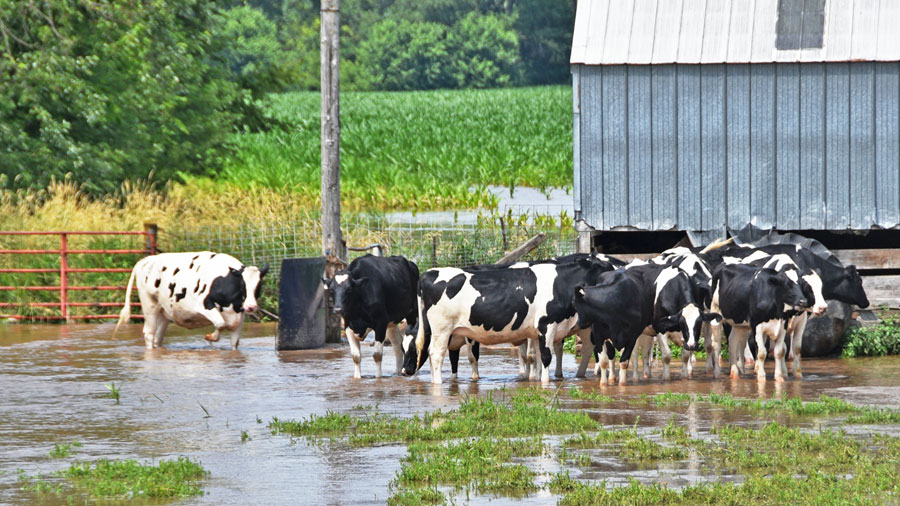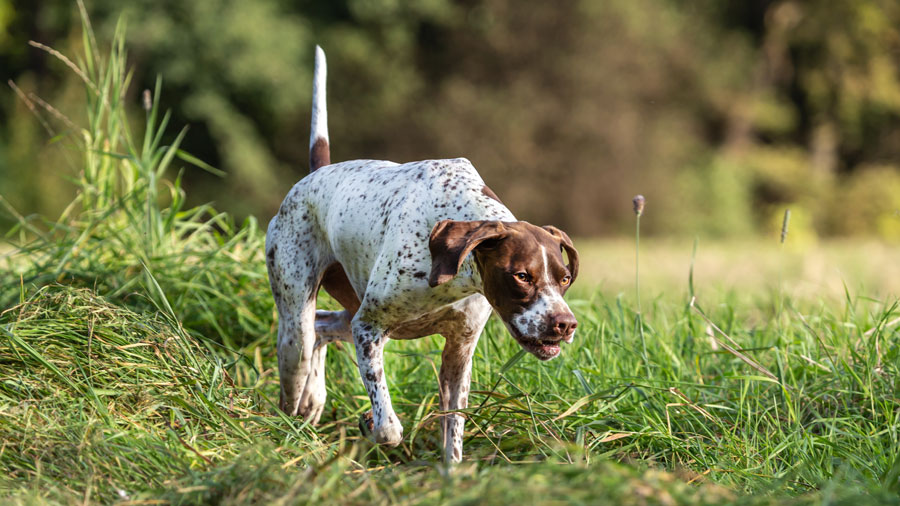COVID-19 hasn’t been the only global pandemic arriving on our shores recently. A new variant of rabbit hemorrhagic disease virus (RHDV), previously common in wild rabbits in Europe, Asia, and Australia, was first detected in the United States in early 2020. It has now spread to multiple states in the U.S., particularly the western states.
How to Get the Vaccine
Vaccination clinics for RHDV will be held
on the following dates at
Veterinary Medicine South Clinic
2100 S Goodwin Ave, Urbana.
Clinic Dates:
* July 12, 2024
* August 9, 2024
Call for an appointment: 217-244-2555
On July 13, 2023, the first case of RHDV was detected in the state of Illinois in a pet rabbit. The case was in Cook County. Prior to this detection, the disease had not been diagnosed in wild or domestic rabbits. This detection raises the level of concern for the health implications of both wild and domestic rabbits within Illinois.
If RHDV is detected or suspected in wild or domestic rabbits, it must be reported to the World Organisation for Animal Health.
Dr. Michelle Borsdorf, a board-certified specialist in zoological medicine at the University of Illinois Veterinary Teaching Hospital in Urbana, recommends that all pet rabbits be vaccinated against this new variant (RHDV2), which is more dangerous than earlier forms of the virus. This variant of RHDV has 70% to 100% mortality rates in pet rabbits.
Its presence in Illinois emphasizes the need to act now to vaccinate and protect against this disease!
What Is RHDV?
Rabbit Hemorrhagic Disease Virus is a member of the calicivirus family. Other viruses in this family that do not cause rabbit health issues include norovirus, the most common cause of gastroenteritis (vomiting and diarrhea) in people, and a feline virus that causes respiratory disease.
RHDV infects wild and domestic species of rabbits and is highly contagious. It does not infect people or other animals. The virus travels through the blood stream of an infected rabbit and rapidly damages the cells of the liver. The liver makes proteins used in forming blood clots, and the classic form of RHDV causes uncontrollable bleeding in rabbits.
Clinical signs of rabbits infected with this virus will primarily include bleeding from the eyes, nose, or mouth, as well as jaundice (yellow discoloration of eyes and skin), which are related to severe liver dysfunction or failure. Affected rabbits may also develop respiratory or neurologic symptoms, or even present with more generalized signs of illness such as lethargy, reduced appetite, and lack of defecation or urination.
“Additionally, some rabbits do not exhibit symptoms prior to succumbing to the disease. This outcome, known as sudden death, illustrates how rapidly the disease can progress,” says Dr. Borsdorf.
How Does RHDV Spread?
Unfortunately, the virus survives well in any environment. Infected wild rabbits may shed the virus outside, and the virus can then be carried into the home on people’s clothing or shoes and introduced to pet rabbits. Any rabbit exposed to blood, urine, or feces of an infected rabbit could develop infection.
Because RHDV is spread between rabbits, Dr. Borsdorf advises taking steps in your home to reduce the risk of RHDV infection.
- Do not allow your pet rabbit to graze in outdoor areas that are frequented by wild rabbits.
- Ensure that shoes worn outside are not worn in areas of the home where your pet rabbit has access.
- Weeds and flowers from outdoor areas frequented by wild rabbits should not be fed to pet rabbits.
- Always wash your hands before and after handling rabbits.
- Vaccinate your pet rabbit.
Vaccination Against RHDV
In other countries where RHDV circulates, vaccinations against the virus are given to pet rabbits. Now that the threat to rabbit health is present in the U.S., the U.S. Department of Agriculture has authorized emergency use of the vaccine here. Distribution of the vaccine to veterinarians began in 2021.
Although the vaccine does not yet have full FDA approval, the approval process is ongoing. Preliminary research suggests that the vaccine is safe and effective in preventing infection. This is based on a challenge study performed where 100% of vaccinated rabbits survived when exposed to the virus, while 70% of the unvaccinated rabbits died from the disease.
Side effects of the vaccine have included mild swelling at the injection site and mild fever or lethargy for a few days after the vaccine is administered. To be effective, the vaccine requires two doses administered at least 3 weeks apart, and annual boosters thereafter.
Vaccination at the University of Illinois
The zoological medicine service will continue hosting vaccine clinics to administer vaccines and their boosters to pet rabbits once monthly. (See sidebar above for the current list of dates.) Veterinary interns, residents, and students as well as certified veterinary technicians will be involved in this process under supervision of faculty members. including Dr. Borsdorf, head of the zoological medicine service.
Because the clinic is focused on delivering vaccine to healthy animals, no diagnostic testing will be performed at that time.
Because of how the vaccine is packaged, vaccination will be offered only through the scheduled vaccine clinics and not through regular appointments with the zoological medicine service at the Veterinary Teaching Hospital.
To make an appointment for your rabbit to receive the vaccine, please call the Veterinary Medicine South Clinic at (217) 244-2555.
For more information, visit:
By Crystal Munguia
Feature photo by Daulet Turubayev on Unsplash




